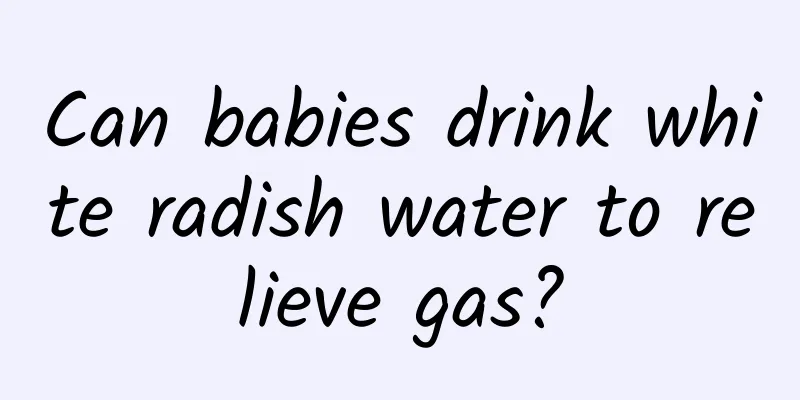How to deal with a low-grade fever in a three-year-old baby

|
Although a three-year-old baby’s self-resistance has improved a lot compared to when he was just born, he still does not have a strong resistance to viral diseases. Therefore, babies often catch colds and have fevers. Once the baby has a fever, many mothers don’t know what to do. So, what should you do if a three-year-old baby has a fever? Is there any way to reduce fever immediately? How should you take care of your body after having a fever? 1. Common physical cooling methods for fever (1) Cold compress: This method is simple and easy. Apply a cold towel to the forehead. After the towel becomes warm, soak it in cold water and apply it again. Using a cold water bag or ice pack is more effective than applying a cold towel to the forehead. (2) Whole body bath or soak in warm water: Undress the baby and rub the whole body with a warm towel or take a bath. This will dilate the blood vessels in the baby's skin and release body qi. In addition, when water vapor evaporates from the body surface, it will also absorb body heat. Take a bath for about 10 to 15 minutes each time, about once every 4 to 6 hours. (3) Use a cold water pillow: If the rectal temperature is above 38°C, a cold water pillow can be used to utilize the lower temperature for local heat dissipation. The soft cold water pillows currently on the market are very convenient and not too cold, so they can be used by older infants and children. However, it is not recommended for infants under 6 months old, because it is difficult for infants to turn their bodies, which may cause local overcooling and frostbite or hypothermia. 2. Drink plenty of water Drinking more water helps sweating, because breathing speeds up when the fever is high, and sweating causes the body to lose a lot of water. Therefore, parents should give their children plenty of water when they have a fever, increase urine volume, and promote the excretion of toxins in the body. In addition, water has the function of regulating temperature, which can lower body temperature and replenish water lost in the body. 3. Pay attention to your diet The diet should be mainly liquid, nutritious, light and easily digestible, such as vegetable porridge, noodle soup, etc. 4. Wear less clothes to dissipate heat for children The traditional idea is that when a child has a fever, he or she should be wrapped tightly with clothes and quilts to "force" the sweat out. In fact, this is wrong. When children have a fever, they will shiver and parents may think that their children have chills, but in fact, this is because their increased body temperature causes convulsions. 4. Pay attention to indoor air Keep the indoor temperature and air circulation appropriate, and minimize visits from relatives and friends to prevent cross infection and help the baby rest. Therefore, parents should pay more attention to the baby's mental state and pay attention to changes in body temperature during the baby's fever. Generally speaking, if the baby's fever is below 38.5℃, physical cooling methods can be used and do not abuse medication. If your baby's fever is higher than 38.5℃, you should take your baby to the doctor in time and take antipyretics under the doctor's guidance. |
<<: What to do if your three-year-old baby has phimosis
>>: Recipes for babies aged one to three
Recommend
Disadvantages of rib rhinoplasty
There are many methods of rhinoplasty now. The pu...
What to do if there are cracks on the soles of your feet
There are many reasons for cracks on the soles of...
What causes acne on cheeks near ears?
If there are pimples on the back of the ear near ...
Why do closed comedones occur?
Closed comedones, also known as whitehead comedon...
Treatment of pituitary tumors
Some tumors are already very common in our curren...
There is herpes on the foreskin. What's the matter with small pimples on the foreskin?
The male foreskin is one of the main components o...
How do you know if sperm is normal?
For men, abnormal sperm often leads to infertilit...
What medicine is good for itchy and peeling hands
In spring and autumn, our hands and feet will beg...
Chinese medicine prescription for gout
The symptoms of gout are somewhat similar to thos...
Ligament adhesion causes and symptoms
Ligament adhesion is quite harmful. It is often c...
What are ventricular polyps?
The gastric atresia is a part of tissue that few p...
Tearing pain in the perineum accompanied by bloodshot
Because the female vulva is completely exposed to...
Left arm muscle twitching
The twitching of muscles is actually caused by th...
Why does my face suddenly feel numb?
Everyone has a different face. People are general...
Effective ways to delay ejaculation
No one wants to be a three-minute ejaculation man...









